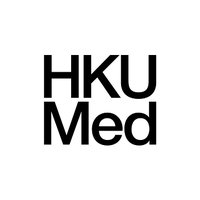
Kris Lok
@krislok_hku
Assistant Professor | School of Nursing LKS Faculty of Medicine | The University of Hong Kong | Maternal & Child Health Researcher |
ID: 1087245159102701568
https://nursing.hku.hk/people/research-faculty/yuet-wan-lok 21-01-2019 07:07:00
142 Tweet
227 Followers
326 Following

🤰🏻#HKUSPH finds extended paid maternity leave from 10 to 14 weeks in Hong Kong associated with a 22% decrease in postnatal depression and a 33% reduction in postpartum emotional well-being interference. Dr. Chao Quan Marie Tarrant Kris Lok Duke-NUS Medical School 🔗 rb.gy/4gelpn


Researchers from HKU Public Health, HKU Nursing, Duke-NUS Medical School and University of British Columbia found that an increase in Hong Kong’s statutory paid maternity leave to 14 weeks from 10 weeks resulted in a 22% decrease in postnatal depression. For more: hkumed.hk/4y9


Peer‐to‐Peer Human Milk Sharing Through Social Media Groups: The Experiences of Women Donors and Recipients in Hong Kong - Li - Journal of Advanced Nursing - Wiley Online Library onlinelibrary.wiley.com/doi/10.1111/ja… HKU Nursing HKU Medicine Jay Lee

The Nutrition and Nurture Conferences is happening again in April 2025! The deadline for abstracts is 30th November shorturl.at/kzTom Please share 🙏 Phil Arthington Margie Davenport, PhD Dr. Kiya Hurley Jemma Orr Victoria Silverwood Helen Jones Fiona Woollard Susan Short RD Kris Lok


Thank you for the invite and grateful to share our work #APHA2024. Great catch up with the APHA Breastfeeding Forum committee. See you next year.


🤱HKU Medicine researchers have found that extending HK’s statutory paid maternity leave improves maternal mental health. The findings are crucial as birth rates worldwide are falling and labour force shortages persist. 📖Read and 🎧listen now at the #HKUBulletin:



Even a partial implementation of the Baby-Friendly Hospital Initiative was associated with a higher exclusive breastfeeding rate @womenandbirth HKU Nursing HKU Medicine sciencedirect.com/science/articl…


Impact of diet on the gut mycobiome of Hong Kong Chinese infants - Computational and Structural Biotechnology Journal csbj.org/article/S2001-… HKU Nursing HKU Medicine HKU Faculty of Dentistry

Impact of the Baby Friendly Community Initiative. The first to evaluate the full BFCI package emphasising its potential to enhance global #breastfeeding outcomes. HKU Nursing HKU Medicine sciencedirect.com/science/articl…



